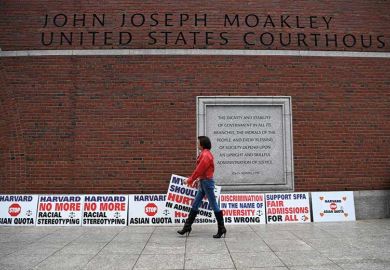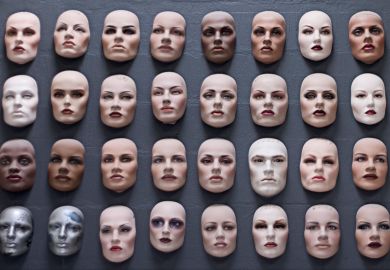Few issues are more effective at exposing liberal hypocrisies and feelings of entitlement than university admissions.
Such questions were already in the air when US playwright Joshua Harmon was growing up in the 1990s, he recalled, and “we’re still trying to figure out how to make a fairer, more equitable world, and people are still trying to figure out how to advance their own children as far as they can possibly go, equality be damned”.
“When you’re talking about admissions, you’re talking about people’s kids, and nothing is more personal,” Mr Harmon said. “So questions around admissions combine what is most personal with the equally intense questions with which America has been grappling since its founding; the political becomes instantly personal, what’s theoretical becomes immediate and present tense, and so the world of admissions becomes a very exciting container in which to ask some pretty big questions.”
Admissions obviously stir up similar tensions well beyond the US. So Mr Harmon’s award-winning 2018 play Admissions should prove equally relevant in skewering liberal pieties and probing liberal guilt in its London run at Trafalgar Studies, in a production by Daniel Aukin, from 28 February to 25 May.
The events take place at a boarding school in rural New Hampshire where the head of admissions is Sherri Rosen-Mason, a woman Mr Harmon described as “someone who publicly is a terrific advocate for change, and privately doesn’t want anything to change for her family at all”. She is so keen on promoting racial diversity and empowering women that at one point her son Charlie accuses her of hating white men.
The opening scene concerns a dispute over the school brochure. Mr Harmon remembered the “awkwardness” of a school photograph where he had to sit with a lot of older pupils “who had never spoken to me before and never spoke to me after” and “pose together as if we were a group of friends”.
He drew on this in the play, where Sherri is “trying to create the perfectly curated photo of a diverse group of students”. We see her berating a subordinate for not including enough pupils who not only count as “people of colour” for the purpose of her statistics but are also “recognisably minorities. So that another minority student can recognisably recognise someone who looks like them.”
Mr Harmon’s earlier play Bad Jews showed a family tearing itself apart over an inheritance. The real drama of Admissions comes when it turns from schools to universities as Charlie and his mixed-race best friend Perry both apply to Yale.
This leads to a ferocious confrontation with his parents about quotas, entitlement, pulling strings and what it really means to be anti-racist – which it is safe to assume London audiences will find just as discomforting as those in New York.
Register to continue
Why register?
- Registration is free and only takes a moment
- Once registered, you can read 3 articles a month
- Sign up for our newsletter
Subscribe
Or subscribe for unlimited access to:
- Unlimited access to news, views, insights & reviews
- Digital editions
- Digital access to THE’s university and college rankings analysis
Already registered or a current subscriber?








